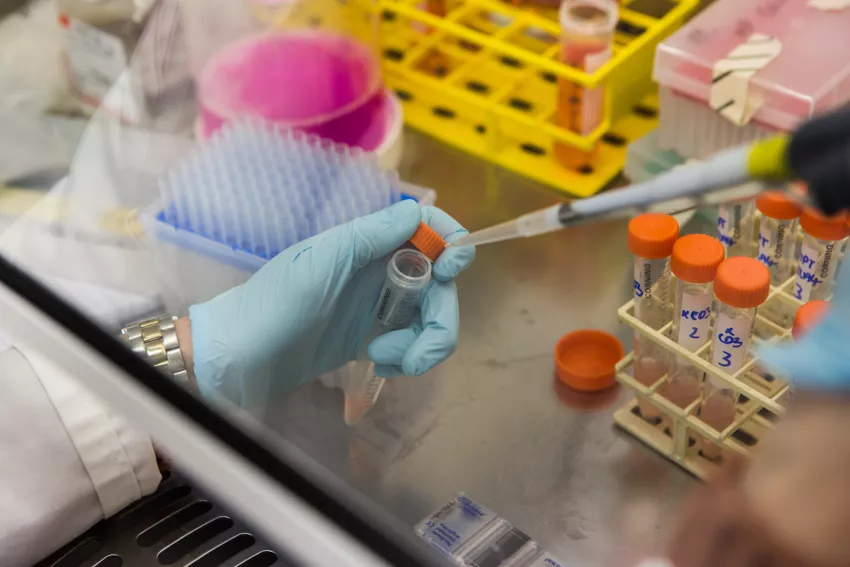
The work of Diabetes UK RD Lawrence fellow Dr Elisa De Franco has helped uncover a key gene that plays a critical role in the development of insulin producing beta cells and could potentially lead to new ways to treat all types of diabetes.
Neonatal diabetes is a rare form of diabetes that develops in babies before they are six months old, caused by a genetic mutation on their DNA. As a result, their bodies don’t produce the correct amount of insulin. Much of the research into neonatal diabetes has looked at identifying which genes are mutated. This will help us accurately diagnose and provide the best treatment for people with the condition.
New research led by Dr Elisa De Franco from the University of Exeter on people with neonatal diabetes has identified a gene called YIPF5. This gene is crucial for the development of insulin producing cells. Without it, these insulin-producing cells cannot survive and die, which means the body cannot produce enough insulin.
The researchers looked at the genetics of 190 babies who developed diabetes shortly after birth. They found that six babies with extremely similar clinical features had genetic mutations in the YIPF5 gene. Researchers at the Université Libre de Bruxelles and University of Helsinki then used genetic editing and stem cell research to work out exactly what role YIPF5 plays.
Their results showed that when YIPF5 is missing or mutated, insulin-producing cells can’t produce insulin, and activate “stress mechanisms” which results in their death.
Not only does this new research help us understand more about how to diagnose and treat neonatal diabetes, it also helps us understand more about the biology behind insulin production. This could help researchers develop new ways to treat people with more common types of diabetes.
Dr De Franco is one of Diabetes UK’s RD Lawrence fellows, and is one of the lead authors on this study. She said:
“This study highlights the importance of gene discovery to further our understanding of fundamental mechanisms in biology. In this case, our research has resulted in the identification of a gene essential for both insulin-producing cells and neurons, highlighting a biological pathway we previously did not know was so fundamental for insulin-producing cells. This has the potential to open new avenues of research and ultimately result in better understanding of how other types of diabetes develop.”
This study was published in the Journal of Clinical Investigation. To learn more about the work of Dr De Franco we have supported, visit the research project page.
